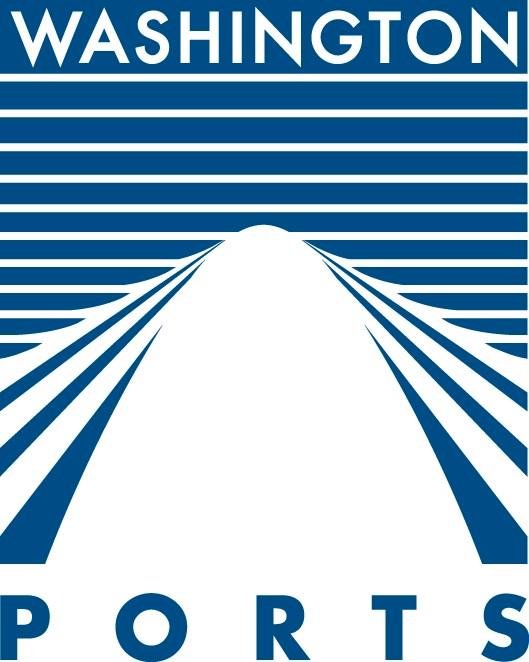May 2023
Knowing the Waters
By Frank Chmelik
Well, we are coming up on what one executive director described to me as “the silly season.” You are thinking spring and maybe some boating or barbeques – we lawyers are thinking election season.
As the election season is upon us, local government officials and employees are regularly faced with making decisions about election-related questions and activities. Officials and employees must remain vigilant about staying on the right side of the line that distinguishes acceptable activities from those prohibited by law. Here is a brief recap.
No Use of Public Facilities or Resources. In general, RCW 42.17A.555 prohibits the use of public facilities by an elected official or any government employee to support or oppose candidates or ballot measures. As most know, this includes the use of employees of the port (or for that matter any public agency) during working hours and the use of public property such as stationery; postage; equipment; cell phones, vehicles; office space; client or tenant lists or agency documents not made available to the public.
Campaign Signs. The prohibition extends to political signs posted on port property. However, what about campaign signs posted on a port tenant’s leasehold? The lease language must be checked to see if the port retained sign approval. If the port does not have sign approval language in the lease it may be difficult to limit political signs on the leasehold. If the port lease contains sign approval language (if not, they should in the future) then the port should have a policy that addresses number, size and duration because it is important to apply the same standard to all candidates and issues. For example, a port may allow two political signs of a certain size and only from June 1st through the general election.
Use of Publicly Owned Images or Videos. Several port commissioners running for reelection have asked if they can use copies of port photographs or videos taken from the port’s website or social media post and import them onto their campaign website, social media post, or campaign materials. The answer is a resoundingly legal “probably not”. In a Public Disclosure Commission (“PDC”) ruling[1] and a related ruling by the Legislative Ethics Board[2] both seem to reach the same conclusion that “agency-produced” materials are considered public property and thus cannot be used by an elected official running for office. Interestingly, RCW 42.17A.555 does not apply to candidates that are not elected officials and therefore these candidates could copy photographs or videos from an agency’s web page and use them in their campaign. This hardly seems fair, but the law was passed as Initiative Measure No. 276 in 1972, well before the invention of the world wide web. We do note that the statute also prohibits elected officials and employees from authorizing the use of public entity resources. So, for example, situations arise in which a candidate asks whether it is permissible to use a public logo or some form of intellectual property of a public entity. The answer from the agency must be “no”.
Linking to an Agency Website or Social Media Page. However, an elected official likely can provide a link on their campaign material to an agency website or social media page. The idea here is that the viewer must leave the campaign’s web page or social media post and then enter the agency’s page or site. But posting such links comes with risk. The PDC guidance publication does not address linking to agency-produced materials. Interestingly, the Legislative Ethics Board has specifically stated that had a legislator posted links to the photos and videos produced by the legislative staff, rather than reposting the materials, the legislator would not violate the statute. The Board specifically noted that “…while legislators may link to legislatively produced material from a campaign website, they may not post or embed that material. To comply with the ethics act, the post may be designed such that the viewer must leave the campaign site in order to view the material produced using legislative resources.” However, caution is recommended in posting such links to agency-produced materials since the PDC has not yet opined on the issue and a mere complaint to the PDC can have an impact on a campaign.
Candidate Forums and Debates at the Port. WAC 390-05-271(2) explains that RCW 41.17A.555 does not prevent an agency from “(a) making its facilities available on a nondiscriminatory, equal access basis for political uses or (b) making an objective and fair presentation of facts relevant to a ballot proposition” if such action “is part of the normal and regular conduct of the office or agency.” The PDC has also held that the use of agency meeting facilities is permitted when the facility is merely a “neutral forum” where the activity is taking place, and the public agency in charge of the facility is not actively endorsing or supporting the activity that is occurring. For example, it is not uncommon for the League of Women Voters to use public facilities to sponsor a neutral, candidate forum prior to an election and use public facilities to do so. These neutral forums are permitted so long as it is part of the normal and regular conduct of the office or agency.
Campaign Buttons and Pins. PDC Interpretation No. 92-01 states that an elected official or public employee is not acting in violation of RCW 42.17A.555 when he or she wears a campaign pin or button during normal working hours. The PDC further stated that “it should not be construed as an authorization to wear political pins, buttons, etc., which would override or supersede an agency’s statute, ordinance, rule, policy, etc., restricting such expressions.” The bottom line is unless there is a port policy, the candidate and the employees can wear pins and buttons.
Uniforms. PDC Interpretation No. 04-02 provides that agency employees shall not use or wear their agency-issued, agency-purchased, agency-owned, or agency-replaced uniforms to assist a campaign or to support or oppose a ballot proposition. This applies to any part of such uniform, including shirt, pants, shoes, hat, etc. The prohibition also applies to equipment-related uniforms such as firearms, badges, nametags, holsters, handcuffs, vests, patches, logos, insignias, emblems, and radios. Prohibited uses include wearing an agency-issued uniform or items at a campaign function or in political advertisements such as a TV commercial or website. However, uniforms that are not property of the agency (i.e., have not been rented or purchased with public funds) may be used in a campaign.
Port Commission and Individual Commissioners Endorsing or Opposing a Ballot Proposition. It seems to me that this issue is coming up more often as port commissions and individual port commissioners are asked to state their view on issues of the day. RCW 42.17A.555 allows a port commission “to express a collective decision, or to actually vote upon a motion, proposal, resolution, order, or ordinance, or to support or oppose a ballot proposition” provided that the commission meeting notice includes “the title and number of the ballot proposition” and commissioners and the public “are afforded an approximately equal opportunity for the expression of an opposing view.”
Individual commissioners can also express “support of or in opposition to any ballot proposition at an open press conference or in response to a specific inquiry.”
Port Employees Participation in the Political Process. Of course, on their own time and without using government resources, port employees can support or oppose a candidate for elected office and any ballot proposition.
As always, please contact your port counsel with any questions regarding this topic. And, if you have a particular question for Knowing the Waters, please email me at: fchmelik@csdlaw.com.
[1] PDC Interpretation No. 04-02; WAC 390-05-271(1)
[2] The legislative Ethics Board provides ethics rulings to the legislature and its members.





